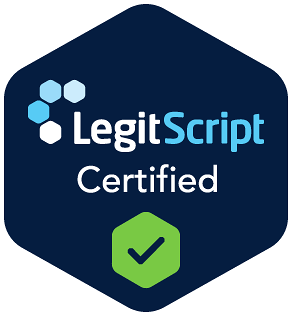The Truth About Menopause Supplements vs. HRT: What You Should Know
In recent years, a surge in menopause-related advertising has targeted women seeking relief from symptoms like hot flashes, night sweats, and mood changes. According to Harvard Health, this new wave of marketing emphasizes over-the-counter (OTC) supplements, “natural” remedies, and so-called safe alternatives to hormone therapy. This movement has given rise to the term “menowashing,” a catchy phrase highlighting the commercialization of menopause without proper regulation.
What many don’t realize is that this industry has become a multi-billion dollar, unregulated market, targeting vulnerable women!
Popular Supplements on the Market
Some of the most commonly advertised supplements for menopausal relief include:
Red clover
Kava
Dong quai
Black cohosh
These products are widely marketed with the promise of easing symptoms, but the science behind their effectiveness is lacking, as well as their overall safety in long-term use.
Are Supplements Really Safe or Effective?
While supplements may appear to be a natural and gentle alternative to hormone replacement therapy (HRT), experts urge caution. The reality is that supplements are not regulated by the FDA, and some can pose serious health risks, especially when taken without medical supervision.
As one professor explains, “While it was possible to cherrypick data supporting menopause supplement ingredients, reputable large-scale reviews haven't found them to be effective.” In short, much of the “proof” behind these supplements is often anecdotal or the data is manipulated based on selective evidence.
The Shift Away from HRT: A Misunderstood History
The rise in menopause supplement marketing can be traced back to 2002, when a highly publicized study sparked fear about HRT.
Within this article, “Professor Davis said the increase in the marketing of menopause supplements started in 2002 when a highly publicised study raised concerns about the safety of HRT. The first headline used was 'HRT causes breast cancer' … the fear was massive, particularly in the general public. …over the years we've realised that is very nuanced and the true impact is, in fact, extremely small.” The data in this study was misrepresented and caused undue stress to many. HRT does not significantly increase breast cancer risk; in fact, it may reduce it in some cases. The risk of breast cancer is actually dependent upon many individual risk factors and not solely from estrogen use.
Since then, many experts have worked to correct the misunderstanding. For many women, HRT remains a safe, effective, and evidence-based treatment for menopausal symptoms, especially when supervised by a healthcare professional. Caution is used if a woman has a personal or family history or estrogen-sensitive cancers.
What You Can Do
If you’re considering a supplement, try one ingredient at a time. This helps monitor side effects more accurately. Many products mix multiple ingredients, making it difficult to determine what’s actually helping, or hurting, you. Read literature regarding potential side effects and risks of such supplements to make an informed decision regarding your health.
At The Balanced Woman, we ensure that HRT is personalized, safe, and designed with YOU in mind. We prioritize evidence-based care over trendy marketing claims! Consult with us today to see if HRT is right for YOU!


